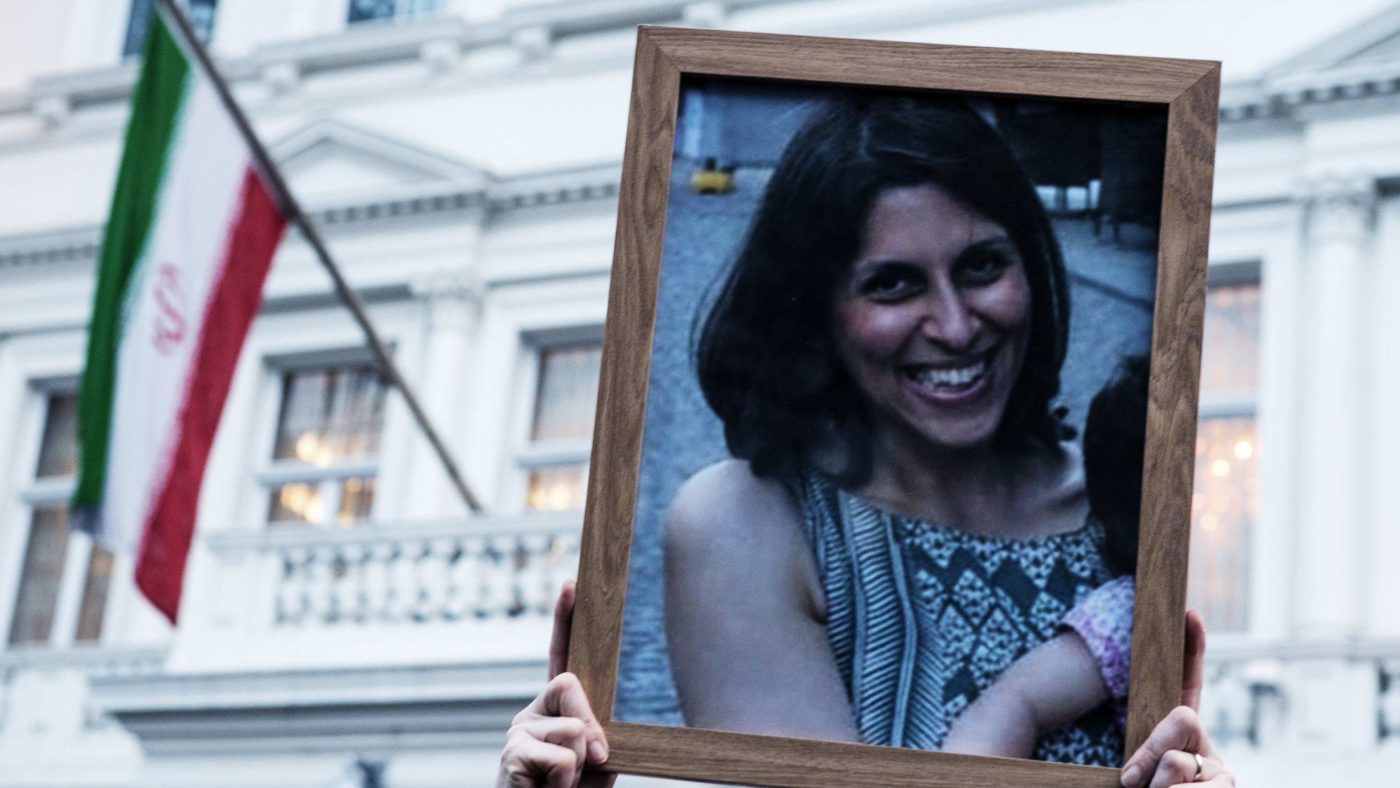If press speculation is to be believed, an optimist might declare that Iran’s cruel treatment of Nazanin Zaghari-Ratcliffe is coming to an end. A pessimist would probably say it was the beginning of the end. After an ordeal that began in April 2016 when she was detained by Iran’s Revolutionary Guards on suspicion of plotting a coup in the country, some positive news is long overdue.
An employee of the Thompson Reuters Foundation, the charitable arm of the Reuters News Agency, Mrs Zaghari-Ratcliffe appears to be a cruel victim of circumstances beyond her control. These include the nature and role of Iran’s Revolutionary Guards, the 40-year dispute between the Islamic Republic and the UK over a £450 million debt, and the way Iran’s suspicious ruling elites view Reuters itself.
Reuters was founded in the 19th century by Baron Julius de Reuter, a German Jew who became a British citizen. In the Victorian era, it developed major commercial interests in Iran, spanning telegraph communications to mining and banking. The controversies around Reuters’ semi-colonial influence are sketched masterfully by former Foreign Secretary Jack Straw in his book on modern-day Iran. But the fact that the Thompson Reuters Foundation is not the same as Reuters, and that Reuters today may not have the ambitions it did in the 19th century, is perhaps a little too subtle for some in Tehran.
Nazanin is not the only dual national to have been targeted by the regime. In recent years, at least nine British-Iranians have been detained in extremely dubious circumstances while visiting or working in the country. From a range of backgrounds – academics, conservationists, businesspeople – they have been accused of spying, despite little or no evidence. Prison sentences of around a decade have frequently ensued.
Britons are particular targets of these measures, as Iran looks to recover a debt for military equipment purchased by the Shah in the 1970s, but only partially delivered by the time he fled the country. Iran seeks to hold Britons as bargaining chips for a debt that has maintained its importance throughout Iran’s many changes in fortune; although emboldened regionally in the period following the 2003 US invasion of Iraq, Iran’s economy has been battered by sanctions and an increasingly restive population openly rebelled in both 2009 and 2017-18.
Why has Britain not paid up?
First, because of Iran’s track record since the 1979 Islamic revolution. Liberal democracies are not usually in the business of giving away £450 million to states involved in terrorism, or accused of sponsoring terrorist groups. Iran’s instrumental role in the rise of Hezbollah, in attacks on Jews as far away as Argentina, and support for armed insurgents across the Middle East from Syria to Afghanistan cement its pariah status. In 1989, Iran also sought to extend its interpretation of the laws of Islam to the streets of the United Kingdom, sentencing the British author Salman Rushdie to death on the grounds that his book The Satanic Verses, was blasphemous. Iran also encouraged the agitation of the late Dr Kalim Siddiqui, who was central to the Rushdie protests in this country. Should Britain settle its debts with Iran, perhaps a suitable deduction should be made to cover the cost of Rushdie’s personal security, and the damage to social cohesion inflicted by the Ayatollah and his supporters?
For long periods, international sanctions against Iran prevented any settlement. There is also the convention, upheld more strongly by the UK and to an extent the Americans than other Western countries, that paying ransoms in hostage cases should be avoided. Attaching the British debt to the issue of imprisoned Britons in Iran may actually have delayed agreement. This is for the self-evident reason that it risks making future hostage-taking more, rather than less likely.
Iran may now wish to position the Zaghari-Ratcliffe case, and others, within the wider political context of relations between the Islamic Republic and the rest of the world. Given the Biden administration wants to rip up Donald Trump’s much tougher approach, seeking a return to the 2015 nuclear agreement, Tehran will feel confident that momentum is on its side.
In Iran’s faction-ridden system of governance, it is most likely the Islamic Revolutionary Guard Corps (IRGC), the upholders of the 1979 Islamic revolution, who will have the final say on any agreement over Mrs Zaghari-Ratcliffe. In his recent memoir, former Foreign Office Minister Alan Duncan largely kept his counsel on Iranian matters. However, in 2018, when there were positive signs of Anglo-Iranian diplomatic engagement, he did suggest that unless the UK was speaking to the Revolutionary Guards, the Foreign Office team of Jeremy Hunt and Alastair Burt would be wasting its time.
Mrs Zaghari-Ratcliffe’s homecoming is long overdue and an agreement, sooner rather than later, is likely. But any outcome celebrated by Tehran, and in particular the Revolutionary Guards, will be painful for all who believe that in international relations, bad behaviour should not be rewarded. And there is no agreement that will guarantee Iran’s future good conduct.
Click here to subscribe to our daily briefing – the best pieces from CapX and across the web.
CapX depends on the generosity of its readers. If you value what we do, please consider making a donation.


